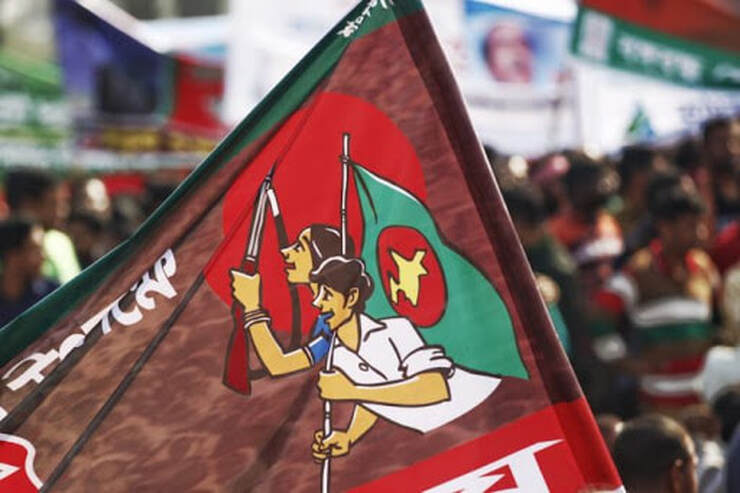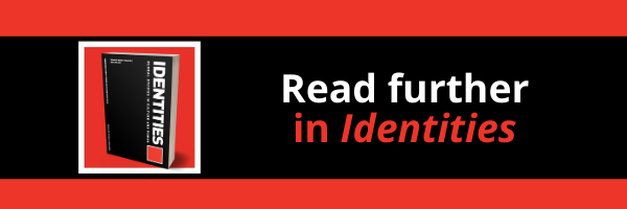|
|
|
The recent visit by Indian Prime Minister Narendra Modi to Bangladesh to attend celebrations marking 50 years since the birth of the country following the Liberation War in 1971 has drawn attention to the difficult task of building a nation on the back of a brutal and bloody civil war. At least four people were killed by police in the Bangladeshi city of Chittagong during a demonstration against Modi’s visit. Protesters from Hefazat-e-Islam Bangladesh, and counter protestors aligned with Bangladesh’s governing Awami League party, represent the central divide in Bangladeshi politics, between those who tie national identity to Islam and those who tie national identity to ethnicity and the Bengali language. This is a divide sometimes understood as one between those who ‘collaborated’ with the Pakistani military and those who participated in the independence struggle. On the Golden Jubilee of Bangladesh’s birth, this divide continues to shape Bangladesh’s political landscape today.
Using the case of the ‘Urdu-speaking minority’ in Bangladesh, my Identities article, ‘Displacement, integration and identity in the postcolonial world’, considered what the experience of minorities displaced during the Liberation War tells us about the Bangladeshi national imagination today. Their own voices, and the narratives of identity and integration in which they are situated, are revealing of the nature and boundaries of the nation state fifty years on from the country’s birth. Although the country remains divided around the role or significance of religion versus culture, and between those who ‘collaborated’ with the Pakistani military and those who participated in the independence struggle, there are older divides at work here too. Some of those who ended up on the wrong side of the Liberation War are accepted into the nation today. Here colonial narratives of ‘population’ versus ‘people-nation’, ‘community’ versus ‘citizen’ structure exclusion not only through narratives of the country’s foundation myth (as commonly assumed) but also through poverty and social space.
Who are the ‘Urdu-speaking minority’ in Bangladesh?
Around 18 million people were forced to leave their homes in the first two decades after the Partition of the Indian Sub-Continent in 1947. Of that number an estimated one million were ‘Urdu-speaking Muslims’ who migrated to what had become East Pakistan. Over time these migrants began to be considered ‘conduits of the West Pakistani colonialists’ and derogatively known as ‘Biharis’. When tensions between the Pakistani administration and the local Bengali majority eventually culminated in the Liberation War of 1971, some ‘Urdu-speakers’ were organised into the infamous paramilitary ‘Peace Committees’ and ‘Razakars’, who are thought to have been responsible for some of the worst atrocities of the war. Consequently, following the birth of Bangladesh in December 1971, the entire ‘Urdu-speaking community’ were branded Pakistani collaborators and socially ostracised. Through the Bangladesh Abandoned Property Order of 1972, designed to dispose of ‘enemy property’, the appropriation of their homes was legalised, and many ended up in temporary camps which emerged across the country. Fifty years since the war, these camps remain. From 1972 to 2008, the ‘Bihari’ population of Bangladesh was recognised as ‘de facto stateless’ by the international community. Camp residents were unable to access government schools, government hospitals and government jobs. They were unable to hold a trade licence, a driving licence, open a bank account or buy and sell property. They lost the right to vote and without identity documents were unable to travel. However, by around 1975, those ‘Urdu-speakers’ who were living outside the camps had regained these rights. Subsequently, in 2008, when the entire ‘Urdu-speaking community’ formally acquired the citizenship of Bangladesh, in a landmark High Court ruling, it was no surprise to many in the camps that their political, civil, social and economic rights remained contested. The ‘double discourse’ of Bengal’s colonial past In the course of my research, camp residents used words such as ‘mixing’, ‘hiding’ and ‘passing’ to explain that assimilation was the solution to their social exclusion. For many of those in the camp, integration was understood through ideas of ‘improvement’ through which acceptance could be achieved. The interface between these processes of ‘mixing’ and ideas of ‘improvement’, ‘respectability’, ‘development’ or ‘progress’ showed how the language of ‘integration’ remained embedded in the ‘double discourse’ of Bengal’s colonial past. This colonial discourse positioned the mass of ordinary people – uneducated, ‘irrational’, traditional – against a relatively small section of educated, propertied middle class thought capable of behaving like responsible quasi-citizens. Today camp residents regularly use the term ‘backward’ to position themselves against the ‘educated respectability’ of ‘Urdu-speakers’ who live outside the camps. The distinction between ‘the bounded, parochial and therefore innocent masses, and the essentially mobile, knowledgeable, modern and supposedly responsible national elite’ divides the ‘Urdu-speaking community’ in social space. In this context, social marking codes ethnic marking; the spaces of the camps have become integral to the manner in which ethnic identity is defined. Accordingly, the camp is constructed as parochial, primitive and fanatic – the natural, pre-political, primordial stage of ‘community’ that must be superseded for ‘freedom’ and ‘progress’ to begin. On the Golden Jubilee of Bangladesh’s birth, religion and a Bengali cultural and linguistic tradition continue to operate side-by-side as the two broad foci of Bangladeshi nationalist identity. And the ‘Urdu-speaking community’ in many ways still represent the archetypal ‘other’ to the country’s foundation story. However, class and poverty are the scripts through which their exclusion is written, through colonial discourses which construct ‘the masses’ as motivated by syncretic cultural traditions and ‘pre-modern’ religious passions, juxtaposed against the educated, respectable ‘people-nation’ of contemporary Bangladesh. The voices of minorities navigating claims to belonging through these discourses shed light on the shifting landscape of national belonging in contemporary Bangladesh and the complicated accommodations this requires.
Image credit: Sourced from Dhaka Tribune.
Blog post by Victoria Redclift, University College London, UK
Read the Identities article: Redclift, Victoria. Displacement, integration and identity in the postcolonial world. Identities: Global Studies in Culture and Power. DOI: 10.1080/1070289X.2015.1008001
Explore other relevant Identities articles:
Towards a differentiated notion of the mainstream: superdiversity and residents’ conceptions of immigrant integration Intimate citizenship: introduction to the special issue on citizenship, membership and belonging in mixed-status families Intergenerational dialogue and positioning change in dealing with racism: Ethiopian Jews in Israel, thirty years after the immigration
0 Comments
Your comment will be posted after it is approved.
Leave a Reply. |
|
Explore Identities at tandfonline.com/GIDE |
|
The views and opinions expressed on The Identities Blog are solely those of the original blog post authors, and not of the journal, Taylor & Francis Group or the University of Glasgow.


